Let’s Move Together: Supporting Well-being Through Exercise at CAS
Men’s Wellbeing Session with Cartwheel Arts
Men’s Wellbeing Session with Cartwheel Arts
At Caring and Sharing, our mission is built on compassion, but compassion isn’t just something we extend outward. It’s something we practice inward, too.
Every day, we walk alongside asylum seekers, refugee seekers, the BAME community, seniors, carers, and others who need a place of safety, solidarity, and support. Through immigration drop-ins, women’s wellness sessions, digital skills classes, ESOL, and the beloved Friends of Shamwari, we hold space for healing, empowerment, and growth.
But in doing this life giving work, we’ve learned a difficult but necessary truth: If we don’t take care of ourselves, we won’t be able to take care of anyone else.
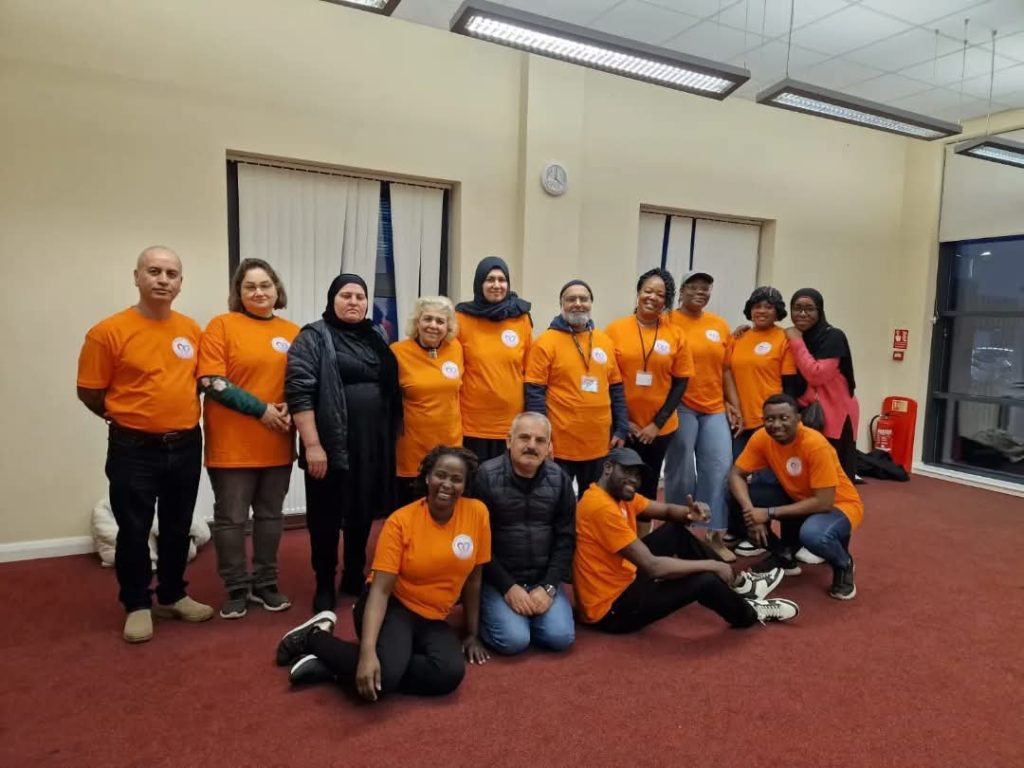
When Compassion Becomes Too Heavy to Carry Alone
Let’s be real: the emotional weight of community work is no joke. It’s not just the hours or the paperwork, it’s the stories we carry, the systems we navigate, the urgency we feel when someone’s safety is at stake. Even the most passionate among us can hit a wall.
But at Caring and Sharing, we’ve decided: burnout is not the price of making a difference. We’ve put intentional strategies in place to help our team stay grounded, protected, and energised, so we can keep doing what we do best, without burning out in the process.
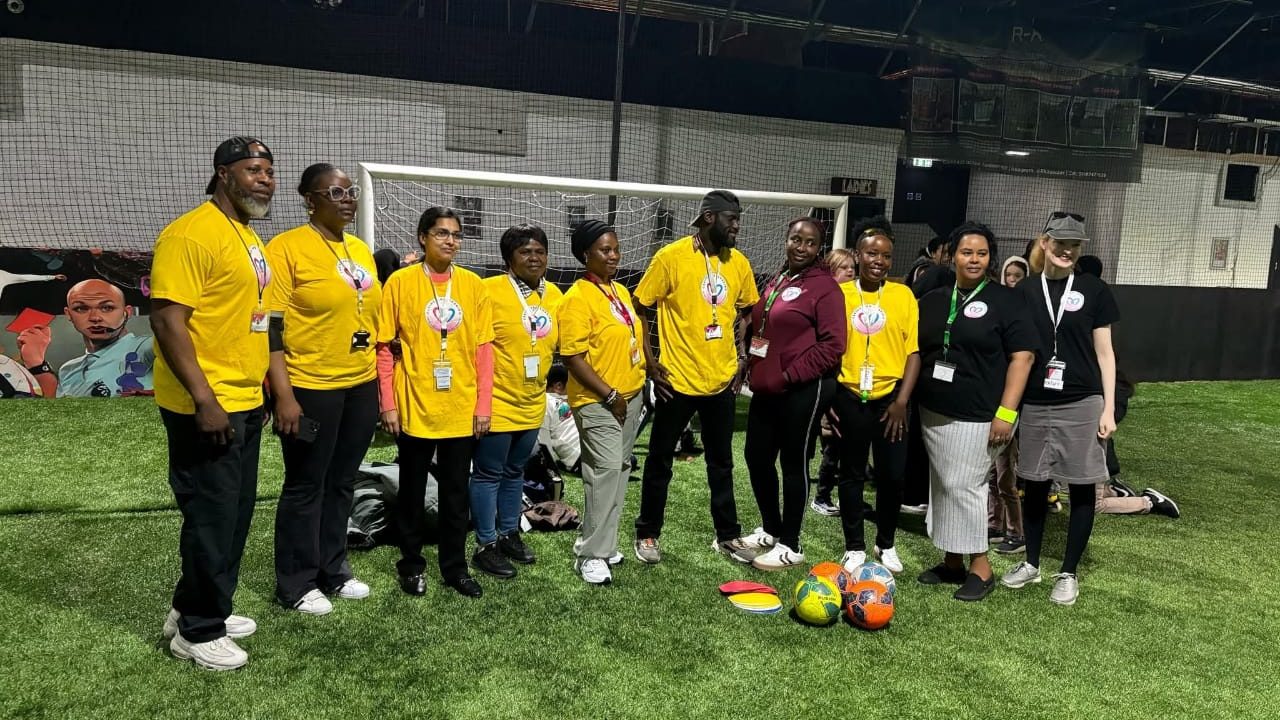
How We’re Protecting Our People While Serving Our Purpose
Here’s how we care for ourselves as we care for others:
1. We Talk About It – Openly, Honestly, Often
We’ve created safe internal spaces where team members can say, “I’m struggling,” without fear or shame. Whether it’s during team meetings, informal chats, or reflection sessions, we encourage real talk about emotional health. Vulnerability isn’t a weakness, it’s a strength that keeps us connected.
2. We Honour Boundaries
We respect that our team members are whole people, not just roles or job titles. We encourage clear working hours, proper breaks, and taking time off when needed. Nobody is expected to be “on” all the time. We don’t glorify burnout, we shut it down before it starts.
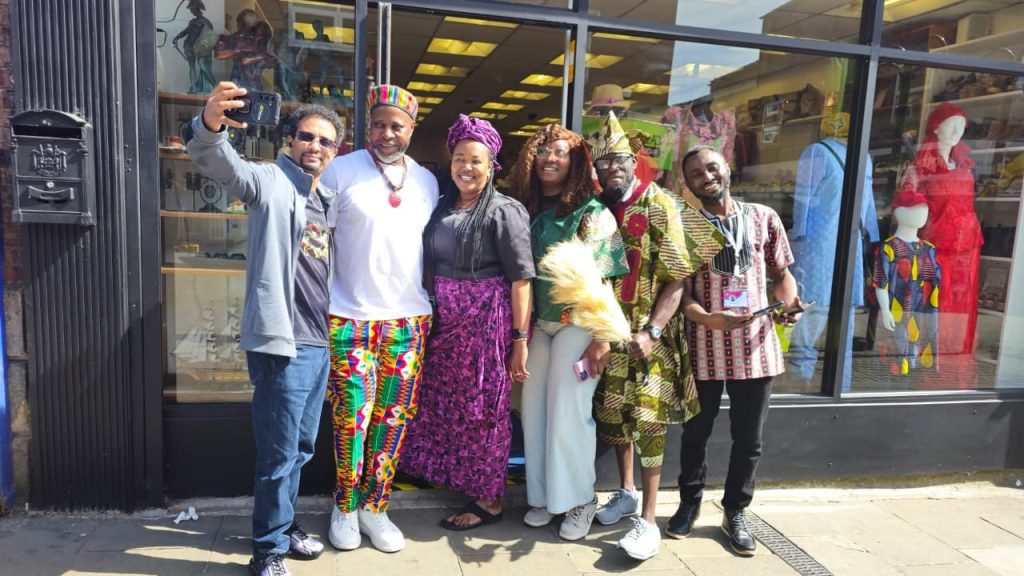
3. We Prioritise Peer Support
There’s healing in shared experience. That’s why we’ve created relaxed spaces, like our monthly tea and chat circles where volunteers and staff can talk, decompress, or just sit in solidarity with one another. It’s not always about problem-solving. Sometimes it’s about simply being seen.
4. We Say No to Martyr Culture
Doing good shouldn’t mean running yourself into the ground. We actively challenge the narrative that says “the more exhausted you are, the more committed you must be.” We celebrate sustainability, not sacrifice. This work is a marathon, not a sprint.
5. We Invest in Our Own Wellbeing
We’re intentional about putting care resources in-house. That means making room for things like mindfulness practices, reflective supervision, access to counselling, and designated wellness time. These aren’t extras, they’re essentials.
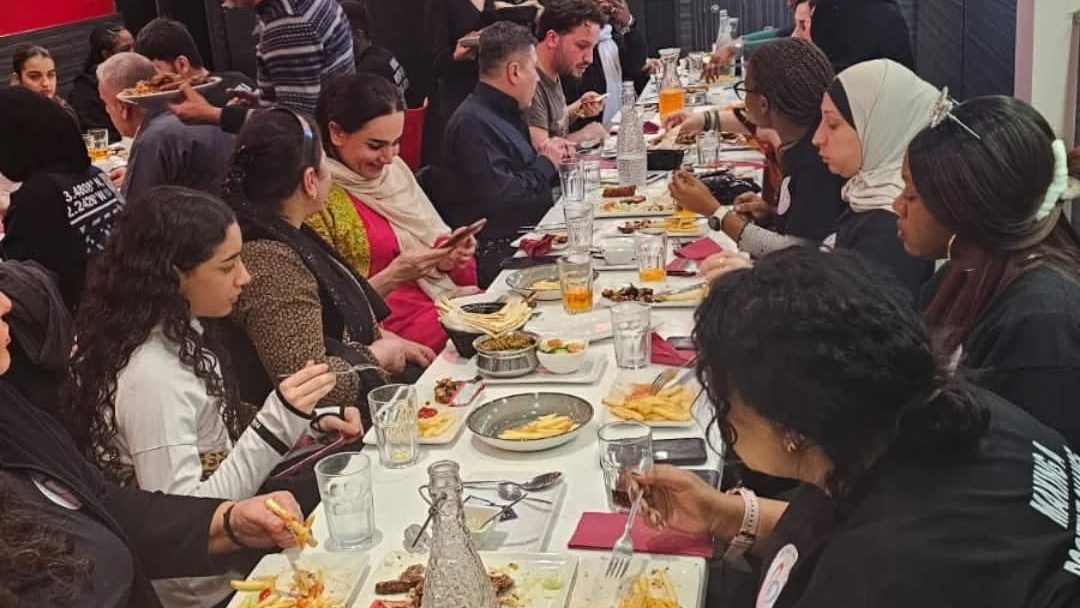
6. We Celebrate Ourselves, Loudly and Often
It’s easy to focus only on the crises, but we’ve learned to pause and celebrate the wins, big and small. Whether it’s someone mastering basic English, a successful referral, or a heartfelt “thank you,” we take time to honour those moments. They fuel us. They remind us why we’re here.
Why This Matters
Because at Caring and Sharing, we know that our people are the heartbeat of this mission. Our staff, our volunteers, our community leaders, are essential. And so, we protect that. When helping starts to hurt, we don’t ignore the pain. We listen to it. We slow down. We regroup. We support one another. Because healing communities begins with healing ourselves.
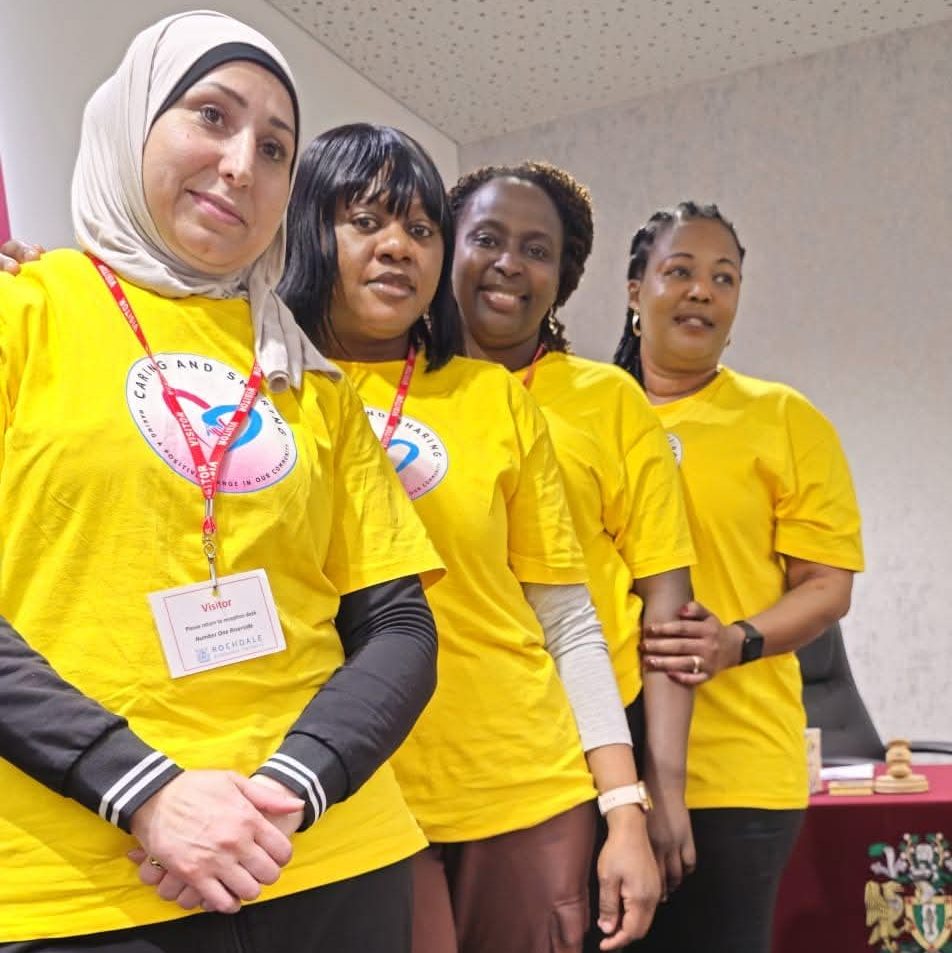
So here’s our invitation to everyone doing this work with us: Take care. Speak up. Rest without guilt. Because when we thrive, our community does too. And that’s the future we’re building, together.
Volunteering is often associated with altruism and selflessness, but it also has numerous benefits for the volunteers themselves. At Caring and Sharing, we’ve witnessed firsthand the positive impact that volunteering can have on mental and social well being. Our organisation, dedicated to supporting asylum seekers, refugees, and vulnerable members of the community, relies heavily on the tireless efforts of our volunteers.
The Power of Volunteering
Research has shown that volunteering can have a profound impact on mental health, reducing stress, anxiety, and depression while increasing feelings of happiness and fulfillment. Socially, volunteering provides opportunities to meet new people, build relationships, and develop a sense of community and belonging.
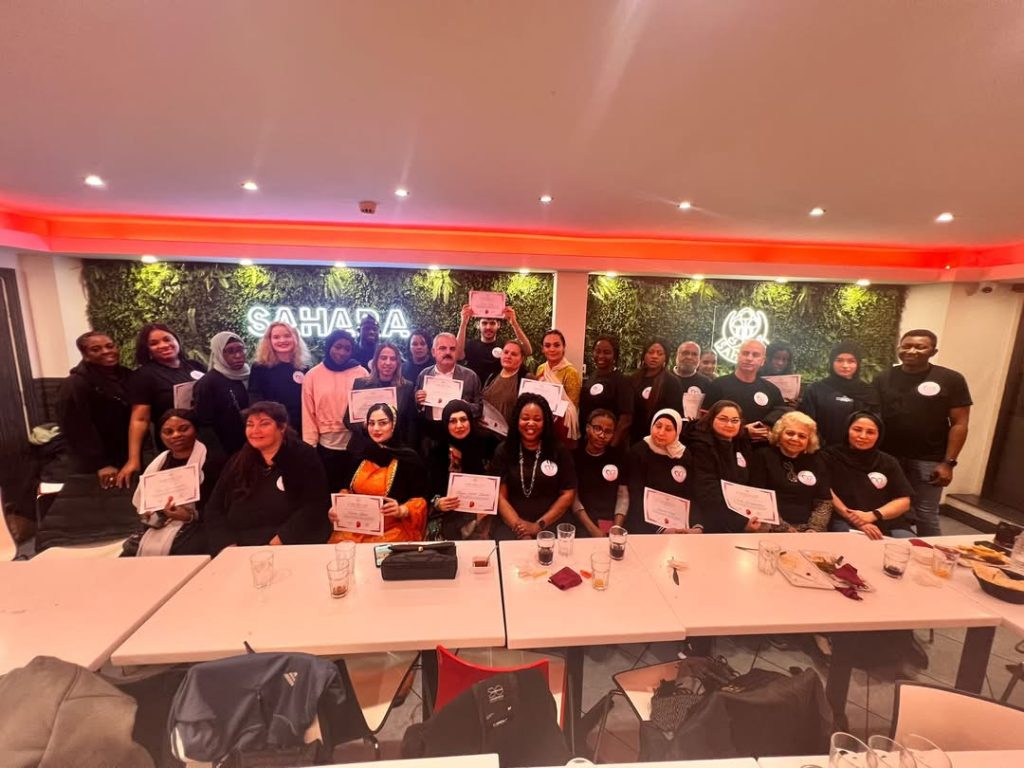
Caring and Sharing Rochdale: A Hub of Community Activity
At Caring and Sharing, we offer a range of activities and services designed to promote community togetherness, and support vulnerable individuals. From ESOL classes to women’s wellness workshops, computer literacy sessions to free immigration advice, our organisation is a vibrant hub of community activity. Our volunteers play a vital role in helping us achieve our goals, supporting us in various departments, including:
The Impact of Volunteering on Mental and Social Well-Being
Our volunteers have reported a range of benefits from their experience with Caring and Sharing Organization, including:
Why Volunteer with Us?
What Kind of Volunteer Opportunities Are Available?
Join Our Community of Volunteers
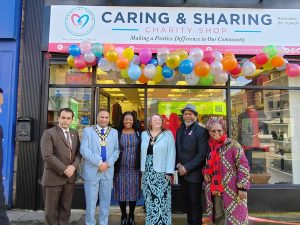
If you’re interested in volunteering with us, we’d love to hear from you. Whether you can spare a few hours a week or a few days a month, your support will make a tangible difference in the lives of our service users. Not only will you be contributing to a valuable cause, but you’ll also be investing in your own mental and social wellbeing.
Contact us today to learn more about volunteering opportunities and join our vibrant community of volunteers.
Let’s get a bit scientific—have you ever heard of the term “symbiosis”?
In biology, symbiosis refers to a close, long-term relationship between different species where one or both parties benefit, and neither is harmed.
Now, let’s step out of the lecture hall for a moment and consider this: Have you ever felt that warm, fulfilling rush after helping an elderly person cross the road, giving a heartfelt compliment, or offering a small act of kindness?
If yes, then you’ve already tasted the magic we’re about to explore!
This article will uncover four powerful ways philanthropy can help you achieve mental and emotional balance.

Philanthropy encourages you to shift focus from your challenges to the needs of others. This perspective helps cultivate gratitude as you begin to appreciate your own life more deeply. By witnessing the struggles and resilience of others, you’ll often realize that your problems may be smaller than they seem—or just a different piece of the iceberg.
Ever noticed how empowering it feels to make a difference? Helping others, even in small ways, can remind you of your strengths and reveal new abilities. It’s like discovering your inner superhero—you don’t need a cape to save someone’s day!
Volunteering or supporting a cause builds your sense of purpose and worth, leaving you with a renewed confidence that ripples into every aspect of your life.
Philanthropy connects people. By volunteering or supporting causes, you engage with like-minded individuals from diverse backgrounds, creating bonds that transcend cultures and break social barriers. These interactions not only enrich your life but also foster a sense of belonging and strengthen community ties.

Giving to others can open your heart in unexpected ways. Acts of kindness often nurture empathy, which can help you release grudges, let go of past hurts, and embrace forgiveness. By focusing on uplifting others, you may find yourself shedding the emotional weights you’ve been carrying.
While philanthropy is often seen as selfless, it’s also deeply transformative for the giver. By embracing philanthropy, you can nurture gratitude, boost your confidence, build social connections, and experience emotional healing.
Start small, and let your heart lead the way—you’ll soon discover that giving is as much a gift to yourself as it is to others.
Have you experienced the positive impacts of philanthropy? We’d love to hear your story—share it with us and inspire someone today!, it can still be a fulfilling and transformative journey—one that benefits both the giver and the receiver.
Volunteering is a vital arm of charity, often celebrated as a noteworthy achievement. It has even become a key criterion for many employers when evaluating potential candidates for various positions.
However, while the benefits of volunteering are numerous, it’s easy to overlook its hidden challenges. Not everything that glitters is gold—sometimes, it’s like biting into a strawberry that’s not as sweet as it looks.
In some cases, organizations fail to uphold their commitments, leaving volunteers feeling let down. This article takes a deep dive into the less-discussed realities of volunteering: fatigue, undervaluation, and neglect, all from a volunteer’s point of view (POV).

While giving your time and energy to a cause can be deeply fulfilling, it can also be physically and emotionally draining. Volunteers often work in environments that demand significant emotional labor, such as assisting vulnerable populations or tackling devastating situations.
Overcommitting to a cause without establishing clear boundaries or practicing self-care can lead to burnout, compassion fatigue, and emotional exhaustion. For many, the drive to help others is so strong that they neglect their own needs, ultimately diminishing their capacity to serve effectively.
Volunteering is a selfless act, but that doesn’t mean volunteers should feel unappreciated. Unfortunately, some organizations fail to provide the resources, structure, or support needed for volunteers to thrive.
This lack of recognition or adequate working conditions can leave volunteers feeling frustrated, undervalued, and inefficient. When their contributions are overlooked, volunteers may question their purpose, diminishing their motivation and ability to create meaningful impact.
An inclusive and welcoming environment is critical for any organization, but unfortunately, some fall short. In organizations lacking diversity, individuals from minority groups can feel isolated or even neglected.
Imagine being part of a team where everyone else shares a similar cultural background and subtly (or overtly) excludes you. This lack of belonging can erode confidence, making volunteers feel unwelcome and questioning their role within the organization.

Volunteering, despite its challenges, remains a powerful way to contribute to the community and build personal growth. Yet, these realities—fatigue, undervaluation, and neglect—shouldn’t be ignored.
To create a positive and sustainable volunteering experience:
Volunteering may have its rough patches, but with thoughtful preparation and communication, it can still be a fulfilling and transformative journey—one that benefits both the giver and the receiver.
We are thrilled to announce that Caring and Sharing, Rochdale (CAS Rochdale) has been honored with the prestigious King’s Award for Voluntary Service—the highest accolade a voluntary organization can receive in the UK!
Previously known as the Queen’s Award, this esteemed recognition is awarded annually on King Charles III’s birthday to celebrate the remarkable contributions of charitable organizations to community development.
This year, CAS Rochdale proudly joins 281 other recipients, a testament to the power of dedicated service and our collective commitment to creating meaningful change.


This award is more than just an honor—it is a celebration of our incredible volunteers, both past and present, who have been the heartbeat of our organization. Their unwavering dedication, compassion, and hard work have made it possible for us to reach milestones we once only dreamed of.
Through their tireless efforts, we continue to make a difference, and this recognition is proof that every volunteer’s contribution matters profoundly.
The King’s Award is not just about prestige; it is a reflection of the lasting impact volunteers have on communities. At CAS Rochdale, our volunteers have helped build bridges of hope, support, and resilience. They’ve brought smiles to faces, lifted spirits, and empowered individuals to rise above challenges. As noted by Mama Health and Poverty Partnership:
“This award is the highest award any voluntary group can get. Well done, Nicky T. Olawoye Iginla, and your amazing team! A well-deserved award!“
This acknowledgment affirms that we are leaping beyond borders, touching lives, and inspiring a legacy of service.
We extend our heartfelt gratitude to our incredible partners, who have stood with us every step of the way, amplifying our vision and mission.
To every individual and community member we’ve had the privilege to serve—you are the true essence of our existence. Your stories fuel our passion, and your resilience inspires us to keep pushing forward.


While this award marks a significant milestone, it is also a call to action to continue the work that matters most—empowering individuals, fostering inclusivity, and creating lasting change. Together, with our volunteers, partners, and supporters, we are excited to embark on new journeys of service and compassion.
Let’s keep shining together!
Charity. Charity.
A timeless act of giving that bridges hearts across centuries.
While charity has evolved over the ages, adapting to the needs of different eras, its essence remains unchanged: true empathy—not just stepping into someone’s shoes, but walking miles in them.
From the grand gestures of Pharaohs building temples and hospitals around 2613–2181 BCE to modern-day campaigns, acts of charity have stood as beacons of hope. While constructing monumental structures may be beyond reach for most, there are plenty of vintage-inspired, yet affordable, ways to make a difference today.
Here are some classic, meaningful, and budget-friendly ideas for giving back this season:

Are you itching for a wardrobe refresh but unsure what to do with your gently used clothes or shoes?
Why not pass them on to those in need? This timeless initiative breathes life into vintage charity efforts, offering practical help to the less fortunate. You can organize a personal giveaway, or team up with organizations like Caring and Sharing Rochdale for a broader impact.
A simple yet powerful way to give—this practice brings nostalgia and goodwill together, reminding us of the power of sharing what we have.
Food donation has deep historical roots, dating back to medieval Europe when churches and monasteries shared provisions with the poor. To this day, food drives remain an enduring tradition—because as long as humans exist, hunger exists. Whether it’s canned goods, fresh produce, or homemade treats, donating food is a universally appreciated act of kindness.
Rally your friends, family, or community for a local food drive to share the love this season.
Want to make a tangible, heartfelt impact while indulging in a creative hobby? Look no further than knitting or crocheting. This vintage tradition gained momentum in 19th-century England, where people created items to support soldiers during wartime. Why not revive the magic? Gather friends who share your passion, and develop blankets for nursing homes, scarves for shelters, or tiny booties for newborns.
Every loop of yarn you weave not only warms someone physically but also emotionally. Plus, it’s a fantastic way to bond over a shared vision of kindness.
Do you love the thrill of discovery? Tap into your inner treasure hunter by collecting unique antiques or vintage art pieces to auction for charity. Proceeds from these sales can support causes close to your heart. And if collecting isn’t your thing, you can still participate as a buyer. By purchasing items from charity auctions, you’re contributing to change while giving timeless treasures a new home. This practice has historical roots dating back to the 17th century, combining adventure, art, and altruism in one exciting package.
This is where charity meets environmental stewardship. Volunteering for community clean-ups not only revitalizes public spaces but also fosters a sense of belonging among participants.
This initiative dates back to ancient Greece and Rome, where volunteers worked together to maintain city cleanliness. It re-emerged in 19th-century America as part of the growing environmental safety movement. Today, it’s an excellent way to connect with your community while protecting the planet.

Charity transcends time, proving that the act of giving is as relevant now as it was centuries ago. Whether it’s donating clothes, sharing food, creating handmade items, auctioning treasures, or cleaning up your environment, there’s a vintage-inspired way for everyone to give back. This season, why not embrace one of these time-tested ideas?
Let’s celebrate the spirit of charity—bridging the past and present to create a kinder, brighter future for all.
Self-care might bring to mind things like spa days, cozy reading nooks, or morning yoga. But there’s another approach—one that’s deeply fulfilling and powerful yet often overlooked. It’s the idea that by giving, we receive; that by helping others, we uplift ourselves. Service as self-care is not only real but scientifically proven to boost mental and physical health. This article will explore why and how lending a helping hand can recharge your soul, improve your mental health, and even enhance your life’s purpose.

Have you ever felt an unexpected burst of happiness after helping someone? That’s the “helper’s high,” a real, scientifically-backed phenomenon. When you help others, your brain releases endorphins and oxytocin—hormones that promote happiness and connection. It’s a rush similar to what athletes experience, but you don’t need to break a sweat to feel it. Science shows that these feel-good hormones also reduce stress and can even improve your heart health. So, instead of just a momentary boost, giving can help regulate your body’s response to stress over time, leading to a more relaxed, grounded way of life.
We all face struggles, big and small, that test our resilience. Acts of service can offer a surprising way to strengthen our emotional endurance. Shifting the focus from ourselves to someone in need creates a mindset shift. Suddenly, our worries might seem a little smaller, and we find new energy to face our own problems. Helping others also reminds us of our ability to make a difference, reinforcing our sense of self-worth and capability. By nurturing this strength, we become more resilient in the face of adversity and more capable of handling life’s unexpected challenges.
Loneliness is a quiet epidemic today, but connection through service can be a powerful antidote. Whether it’s working in a soup kitchen, volunteering at a hospital, or simply spending time with someone in need, these acts remind us of our shared humanity. We’re wired for connection, and service is one of the most genuine ways to build it. By connecting with others through acts of kindness, you open yourself to empathy, compassion, and understanding. Studies show that social interactions through volunteering can improve mental health and increase happiness. These shared experiences remind us we’re not alone and help us feel more connected to the world around us.
When you help others, you often gain a new perspective on your own life. Volunteering or engaging in charity can shift our focus away from what we lack to what we already have. This natural feeling of gratitude that comes from helping others is one of the most powerful ways to nurture a positive mindset. Gratitude has been linked to improved mental and physical health, increased happiness, and reduced stress. By stepping into others’ shoes, we learn to appreciate our own lives more fully. Service gives us a chance to practice gratitude in real life, shifting our outlook and making us more content.

Seeing the impact of our actions on someone else can be transformative. There’s a quiet, fulfilling pride in knowing that you made someone’s day a bit brighter. Every small act of kindness, from comforting a friend to volunteering at a local shelter, shows us that we matter and can make a difference. This naturally builds self-worth. This kind of confidence isn’t tied to external achievements but to a sense of purpose that’s stable, enduring, and deeply satisfying. By focusing on others, we learn more about ourselves, building a stronger foundation of self-esteem.
If you’re wondering how to make service a regular part of your life, it can start with small, everyday actions. Here’s how to make it work for you:
Reflect and Acknowledge: After an act of kindness, take a moment to reflect on how it made you feel. This reflection will help you realize the positive impact that service can have on your own life.
Start Small: Simple acts like holding the door for someone, listening to a friend, or complimenting a stranger go a long way.
Volunteer Your Skills: Think of the skills you have that others might need. Are you good at tutoring, baking, or organizing events? Find opportunities that allow you to contribute in a meaningful way.
A charitable heart gives freely and doesn’t expect anything in return. This form of selfless giving, known as altruism, brings a unique kind of joy—one that doesn’t rely on recognition or rewards. Challenge yourself to perform random acts of kindness anonymously. For instance, you could donate to a cause without mentioning your name, or you could surprise a neighbor by shoveling their driveway after a snowfall. By giving without expectation, we cultivate humility and find fulfillment in the simple act of kindness itself, which reinforces a sincere desire to help.

Self-care isn’t just about focusing inward; it can also mean opening up to others. Acts of service help us rediscover our own resilience, reinforce our sense of purpose, and find happiness in ways we never expected. By extending a helping hand, we not only uplift others but also experience healing ourselves. So, next time you think about self-care, consider how giving can recharge your spirit, build connections, and create a more compassionate world—one small act at a time.
There’s a story about a young boy who, walking along the shore, noticed thousands of starfish washed up on the beach. One by one, he picked them up and threw them back into the ocean. When a passerby told him, “You’ll never save them all. What difference does it make?” the boy picked up another starfish and replied, “It makes a difference to this one.”
Developing a charitable heart is about recognizing the difference you can make, no matter how small; it’s about cultivating an enduring mindset of kindness, compassion, and empathy. But how can we nurture this spirit within ourselves? How do we begin to make that vision a reality? Here are some steps to help cultivate a heart that’s ready to give, uplift, and change lives.

Charity often evokes thoughts of donating money, but it’s so much more than that. True charity comes from a place of love and empathy, encompassing acts of kindness and generosity that don’t necessarily require financial resources. Charity is about giving our time, our compassion, and our presence. It can mean being there for a friend, listening without judgment, or sharing knowledge with those who need guidance. By understanding charity in this broader sense, we can appreciate how everyday actions can embody kindness.
One of the simplest ways to build a charitable heart is to practice kindness within our immediate surroundings. Charity doesn’t need to start with grand gestures; small acts of kindness are just as impactful. Try helping a family member with chores, or spend an extra few minutes genuinely asking someone how their day went. You could cook a meal for a friend in need or help a neighbor carry their groceries. These actions remind us that charity is accessible to everyone and that even small actions can create meaningful connections. Make it a goal to do one small act of kindness each day—it’s a small step that builds the habit of generosity.
Cultivating a charitable heart is an introspective journey. Take a few moments each week to think about your values and the kind of person you want to be. Consider journaling about what makes you feel fulfilled, especially in moments when you helped others. Ask yourself why these actions resonate with you. This reflection can reveal powerful motivations that drive your kindness. Practicing empathy can also nurture a charitable heart. Imagine walking in someone else’s shoes, or read stories about people who’ve overcome hardships. Building empathy broadens our understanding and strengthens our desire to contribute positively
Awareness often inspires action. To foster a charitable heart, it’s crucial to stay informed about the challenges people face. You don’t have to look far; start by researching the issues affecting your community. Local charities, community centers, or volunteer organizations are great sources of information. Consider reading about global issues like food insecurity, access to education, and mental health. You can also subscribe to newsletters from humanitarian organizations or follow social media accounts dedicated to causes you care about. The more we know, the more compelled we are to help—and the more meaningful our contributions become.

Gratitude is a powerful tool for nurturing a charitable heart. When we appreciate what we have, we become more inclined to share with others. Try incorporating a gratitude practice into your daily routine, such as writing down three things you’re grateful for each day. By recognizing our blessings, we develop a sense of abundance, which can make us more generous and willing to help those who may not have the same privileges. Gratitude also helps us remain mindful of how our support, big or small, can uplift others and contribute to the well-being of our communities.
Nothing builds a charitable heart quite like volunteering. Offering your time to support others provides a direct way to connect with those in need and understand their lives. Volunteering can also give you a sense of purpose and fulfillment. You might volunteer at a food bank, help with a neighborhood cleanup, or mentor young people. For those interested in virtual opportunities, many organizations offer remote roles, such as tutoring or administrative support. Even a few hours a month can make a difference, and seeing the impact of your efforts firsthand can fuel your desire to give even more.
A charitable heart gives freely and doesn’t expect anything in return. This form of selfless giving, known as altruism, brings a unique kind of joy—one that doesn’t rely on recognition or rewards. Challenge yourself to perform random acts of kindness anonymously. For instance, you could donate to a cause without mentioning your name, or you could surprise a neighbor by shoveling their driveway after a snowfall. By giving without expectation, we cultivate humility and find fulfillment in the simple act of kindness itself, which reinforces a sincere desire to help.
A key factor in developing a charitable heart is the company we keep. By surrounding ourselves with compassionate, giving people, we’re encouraged to grow and deepen our kindness. Consider joining clubs, organizations, or volunteer groups that focus on charitable work. Many people find inspiration from friends, colleagues, or mentors who are actively engaged in giving back. Online communities and social media groups centered on charity can also provide encouragement and new ideas. When kindness is embedded in our environment, it becomes a natural part of our behavior.

Inspirational stories of charitable figures can help us understand the depth of a charitable heart. People like Mother Teresa, Mahatma Gandhi, and Nelson Mandela dedicated their lives to serving others, often in challenging circumstances. Learning about their journeys can show us that anyone can make a significant impact, regardless of their background or resources. Watching documentaries, reading biographies, or attending talks on these figures can fuel your inspiration and provide valuable lessons in resilience, empathy, and compassion.
Developing a charitable heart isn’t a one-time achievement; it’s a lifelong journey. Some days, we’ll feel more generous than others, and that’s okay. A charitable heart grows with patience, reflection, and practice. Don’t be discouraged by setbacks or moments when you feel you could have done more. Every effort counts, and each step you take brings you closer to a life enriched by kindness and compassion. Embrace charity as a part of who you are and let it guide your actions.
Developing a charitable heart starts with the decision to care. Every act of kindness, no matter how small, contributes to a world where compassion and generosity are the norms. As you go about your day, look for simple ways to make a difference. Whether it’s sharing a smile, offering a helping hand, or volunteering your time, every act counts. Start today and discover how a charitable heart can transform your life and the lives of others.
If the first thought that pops into your mind the next time someone invites you to the library is a long stack of scholarly expressions, then this piece is for you.
Libraries are traditionally homes for books, but today, seeds are finding a place on the shelves too—though with a unique twist.

A seed library operates like a traditional library but with seeds instead of books. It’s a community-based program where people can borrow seeds, grow plants, and then return seeds from those plants for others to use. It’s a beautiful cycle that promotes local agriculture and sustainable gardening.
Investing in a seed library is an effective launchpad to promote the right foods through food security, aligning perfectly with the theme for 2024 World Food Day: “Right to Foods for a Better Life and Future.” However, building a seed library is only one piece of the puzzle in tackling world hunger. Here are some fun and engaging methods to promote the right to food:

The crux of this read is the necessary steps required to cut the widespread shortage of food and keep every stomach constantly fed across the board.
Host friendly cooking competitions using limited or donated ingredients. This encourages creativity and teamwork while demonstrating how to prepare meals on a budget. The dishes made can also be shared with local charities.
Organize community dinners featuring local ingredients, where attendees can have a meet-and-greet with farmers and learn about sustainable agricultural practices.
Promote a barter system where community members can trade goods or services for food. This helps those who may not have the financial means to obtain food but can contribute in other ways.
Create fun cooking challenges with specific themes, like a “one-pan dish challenge” or a “five-ingredient meal.” These challenges make meal preparation fun while emphasizing simplicity and moderation.
Celebrate local harvests with festivals featuring food tastings, games, and educational activities on growing and preparing food. This not only promotes local agriculture but also builds community spirit.
By implementing these creative and community-centered ideas, you can contribute to food security in meaningful and enjoyable ways. Together, we can ensure every table is full and every stomach fed, while having some fun along the way.